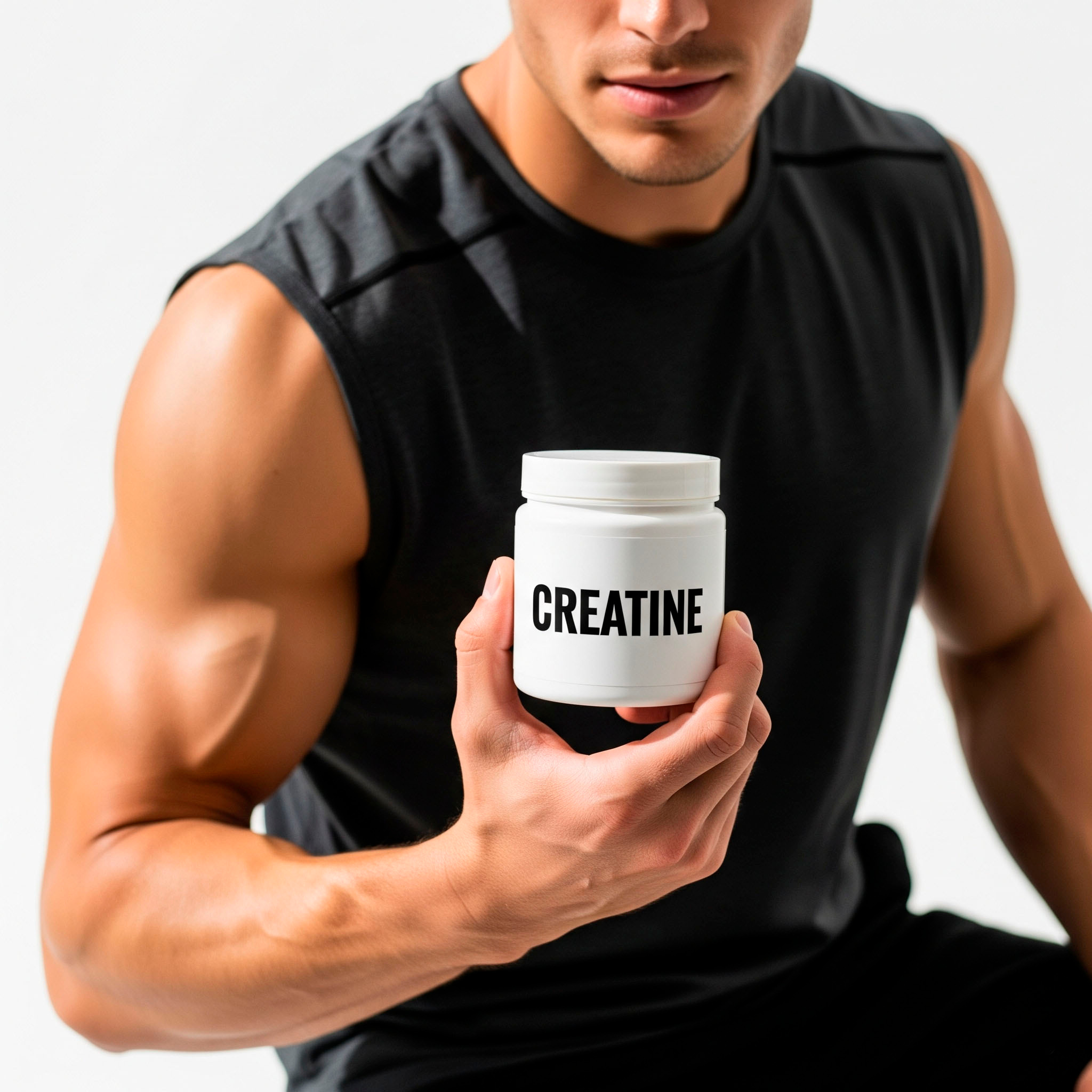 Creatine has become synonymous with the bodybuilding world, with brand names such as “Warrior” and “BodyBuilding Warehouse” emblazoned on cartons and marketing campaigns featuring muscle-bound men holding huge, heavy dumbbells.
Creatine has become synonymous with the bodybuilding world, with brand names such as “Warrior” and “BodyBuilding Warehouse” emblazoned on cartons and marketing campaigns featuring muscle-bound men holding huge, heavy dumbbells.
However, emerging evidence points to creatine being a highly beneficial ingredient for women’s hormonal and cognitive health rather than just an athletic performance enhancer.
Supplement company Thorne recently collaborated with singer-songwriter and dancer Ciara in a creative campaign designed to highlight the benefits of creatine for women.
The campaign aimed to raise awareness of creatine’s wide-ranging benefits and how Ciara uses it to uphold her hectic lifestyle.
Emily Letton (EL) spoke with Thorne’s Chief Growth Officer, Mary Beech (MB) and Maura MacDonald (MM), Medical Education Specialist, Sports Nutrition, about how creatine is poised to change course from a sport-specific supplement to a holistic ingredient for women and how Thorne and Ciara have rebranded it for women.
EL: How does this collaboration challenge the notion that creatine is a bodybuilding aid and contribute to creatine’s success in women’s functional foods?
 MB: For the longest time, creatine has been associated mainly with bodybuilders and athletes, but Ciara shows how creatine casts a much wider net in terms of science-backed benefits — including performance, endurance and cognition.
MB: For the longest time, creatine has been associated mainly with bodybuilders and athletes, but Ciara shows how creatine casts a much wider net in terms of science-backed benefits — including performance, endurance and cognition.
The campaign really highlights how Thorne Creatine supports so many different parts of her life, her everyday routine and overall health and wellness.
EL: Do you see creatine becoming a mainstream ingredient in women’s functional foods/multivitamins?
MM: It’s clear that creatine is having a moment right now and it’s safe to say that, given the many benefits consumers are discovering, creatine is not just another wellness fad that will fade away.
We’ve already seen the rise of creatine as a mainstream ingredient that more and more people are integrating into their routines — men and women alike — and new formats and flavours are certainly emerging every day.
While creatine doesn’t necessarily fall into the category of a multi-vitamin and mineral supplement, it is still an essential nutrient that many people can reap benefits from.
EL: How does creatine supplementation specifically affect women differently than men, in terms of muscle, endurance and cognition?
 MM: The effects creatine has on women can differ from those seen in men due to differences in things such as physiology, hormone levels and typical dietary intake.
MM: The effects creatine has on women can differ from those seen in men due to differences in things such as physiology, hormone levels and typical dietary intake.
Overall, women tend to consume and store less creatine than men, mostly due to the fact that men tend to have a higher muscle mass and have the ability to store more creatine.
Due to this, women may experience a more noticeable benefit from taking a creatine supplement, especially if their dietary intake is already low.
Despite these differences, both women and men can see physical and cognitive benefits from creatine, including increased muscle mass, enhanced endurance and focus and more.
EL: Take pregnancy, for example. Creatine is vital in pregnancy and pregnancy supplements are a huge industry, yet it is rarely touted as a beneficial supplement in this space. How could creatine be positioned within this sector to appeal to pregnant women?
MM: While there is newer research available in animal models that supports the growing evidence that creatine supplementation has the potential to be beneficial during pregnancy, research in humans is limited and further studies are needed before recommendations can be made during pregnancy or while nursing.
EL: What is known about the effects of creatine supplementation during women’s different reproductive stages, such as pregnancy, postpartum and perimenopause/menopause?
MM: Again, there is limited research available around supplementing creatine during pregnancy; however, creatine can be beneficial to a woman during both perimenopause and menopause.
 During this time of life, women typically see a decrease in oestrogen and progesterone, the primary female sex hormones.
During this time of life, women typically see a decrease in oestrogen and progesterone, the primary female sex hormones.
Oestrogen plays an important role in bone metabolism and as oestrogen levels fluctuate throughout perimenopause and menopause, this can lead to an accelerated rate of bone loss.
Supplementing with creatine, in conjunction with a resistance training regimen, can indirectly help maintain bone mass by helping to maintain lean muscle mass.
EL: What strategies can brands use to educate women about the safety and efficacy of creatine?
MB: Education is at the heart of what we do and it’s something we take a lot of pride in.
We know that in the supplement space, myths and misconceptions can be a barrier, which is why we’re committed to providing clear, science-backed information to consumers.
Celebrity partnerships complement that work by helping us reach broader audiences and bring those educational messages to life in relatable ways.
With Ciara, for example, we’re able to show that creatine isn’t just for bodybuilders – it’s also for women, working mums and professionals who want to support their overall well-being.
Education will always be the foundation, but partnerships such as this can make that education resonate in a more personal and impactful way.
Pairing education with credibility and trust is critical; that’s why we don’t just follow quality and safety standards, we set them.
From rigorous ingredient sourcing to comprehensive testing and clean manufacturing practices, every part of our process is designed to ensure excellence so consumers can feel confident that what they’re putting in their bodies is both safe and effective.
EL: Further to this, how important is this consumer education in driving the adoption of creatine within women’s health categories?
MB: Consumer education is at the heart of what we do and is something we keep top of mind when developing all of our products.
The more we can educate women on the wide range of benefits creatine can offer them, the more women will feel confident in considering it for their health.
For us, that begins with breaking the longstanding notion that creatine is just for bodybuilders.
Our campaign with Ciara establishes a strong educational foundation for this message, which we will continue to reinforce as we highlight the broad benefits of creatine.
EL: What research evidence can Thorne provide for the cognitive/brain-based benefit claims of creatine in women beyond athletic performance, for example, reducing mental fatigue or improving memory?
MM: In terms of cognition, the brain uses about 20% of the body’s daily energy needs, powering our thinking, supporting memory formation and directing the physiological processes happening consciously and subconsciously.
Consistent creatine supplementation has been shown to increase brain creatine content, supporting cognitive function in various aspects.
To conclude
As creatine continues to move beyond its gym-centric roots, it represents a case study in how the nutraceutical industry can reframe established ingredients for new demographics using credible science and strategic communication.
Thorne’s partnership with Ciara demonstrates how aligning with relatable ambassadors, while still maintaining clinical evidence and backing, can bridge the gap between peak performance and everyday wellness.
For formulators and brands, the opportunity now lies in leveraging education, data-driven claims and innovative delivery formats to expand creatine’s relevance without compromising scientific integrity.
In doing so, companies can transform a once-niche sports supplement into a mainstream health essential and set a new precedent for how evidence-based storytelling drives growth across the active nutrition sector.
